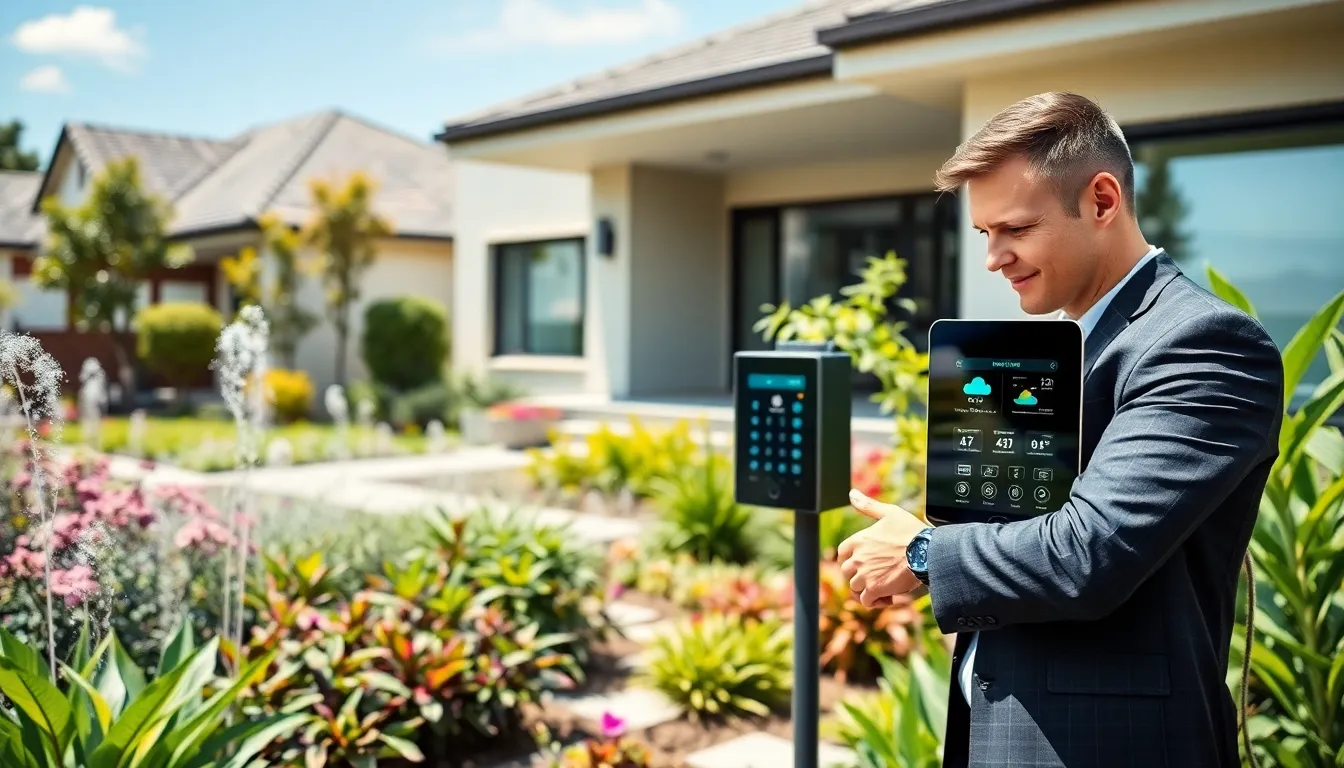Table of Contents
ToggleIn a world where everyone’s glued to their smartphones, mobile health apps have emerged as the superheroes of personal wellness. Forget the days of scribbling down workouts or tracking meals on paper. Now, with a few taps, anyone can have a personal trainer, nutritionist, and therapist right in their pocket. Who knew that saving your health could be as easy as swiping right?
These apps aren’t just for the tech-savvy; they’re designed for everyone looking to level up their health game. Whether it’s tracking steps, managing stress, or counting calories, mobile health apps make it all feel like a fun game rather than a chore. So why not embrace this digital revolution? After all, if health can be just a click away, who wouldn’t want to join the party?
Overview of Mobile Health Apps
Mobile health apps serve as innovative tools for managing personal health effectively. These applications cover a vast array of functionalities, including fitness tracking, mental health support, and chronic disease management. Users access features designed to monitor various health metrics such as physical activity levels, heart rates, and daily calorie intake.
Numerous apps take personalization to the next level, tailoring recommendations based on individual goals and health conditions. For example, some fitness apps generate customized workout plans that adapt as users progress. Nutrition-focused apps offer meal suggestions based on dietary preferences and restrictions.
Moreover, mobile health apps promote connectivity by allowing users to share progress with healthcare professionals and family members. Such interaction enhances accountability and support, contributing to users’ overall wellness journey.
Statistics confirm the growing popularity of mobile health tools. Recent surveys indicate that over 60% of smartphone users utilize health-related apps, reflecting a significant shift in how people approach their healthcare needs.
The accessibility of mobile health apps democratizes health management. Individuals from diverse backgrounds can easily integrate these tools into their daily routines, paving the way for healthier lifestyles.
Mobile health apps not only provide convenience but also empower individuals to take charge of their health in an enjoyable manner. Embracing these digital advancements enhances the user experience and facilitates better decision-making regarding personal health and wellness.
Benefits of Mobile Health Apps

Mobile health apps offer numerous advantages for users. They significantly enhance health management by providing real-time feedback and support.
Improved Health Monitoring
Users can monitor health metrics like heart rate, activity levels, and sleep patterns through these apps. Such consistent tracking allows for timely adjustments to health plans. Data integration with wearables further enriches the user experience, offering a comprehensive view of wellbeing. Reliable analytics help identify trends over time, enabling proactive health decisions. For example, individuals can set goals based on detailed insights and receive reminders to stay on track. Engaging with applications that present data clearly contributes to better health outcomes.
Enhanced Patient Engagement
These apps foster active participation in personal health management. Features like goal setting and progress tracking encourage users to take control of their wellness journey. Community forums and social sharing options enhance motivation by connecting users to others with similar goals. Engaging with healthcare professionals through in-app messaging promotes dialogue and accountability. Personalized health recommendations adapt to user preferences, optimizing the overall experience. Statistics show that patients who actively use health apps are more likely to adhere to treatment plans, boosting overall satisfaction with their care.
Types of Mobile Health Apps
Mobile health apps come in various forms, catering to diverse wellness needs. These applications enhance the user experience by providing tailored health solutions.
Fitness and Activity Trackers
Fitness and activity trackers form a vital category of mobile health apps. They allow users to monitor steps, workouts, and calories burned. Users often enjoy features like goal setting and progress visualization. Popular examples include MyFitnessPal and Fitbit, which offer compatibility with wearables. Integrating with devices like smartwatches enhances the tracking experience. Studies show that users who actively track their fitness experience higher motivation levels. Satisfaction increases when users receive instant feedback on their performance.
Medication Management Apps
Medication management apps simplify the process of tracking medication schedules and doses. These apps provide reminders, ensuring users take medications on time. Users can easily manage prescriptions, refill requests, and medication interactions. Examples such as Medisafe and MyTherapy show how technology assists in medication adherence. Enhanced features include medication education and side effect tracking. Data indicates that users of these apps often report improved adherence to treatment plans. These apps bridge communication with healthcare providers, fostering better patient outcomes.
Challenges of Mobile Health Apps
Mobile health apps face several challenges impacting their effectiveness and user satisfaction. Addressing these issues is crucial for enhancing user experiences and ensuring safe health management.
Data Privacy Concerns
Data privacy remains a significant challenge for mobile health apps. Users often share sensitive health information, raising concerns about unauthorized access and data breaches. Research reveals that 80% of smartphone users worry about how their data is handled. Regulations like HIPAA enforce strict guidelines, yet many apps lack robust security measures. Users may abandon apps if they doubt their data’s safety. Transparency regarding data collection practices fosters trust. Apps need to implement end-to-end encryption and user consent protocols to address these concerns effectively.
User Engagement Issues
User engagement fluctuates significantly across mobile health apps. Studies suggest that nearly 25% of users stop using health apps after less than a month. Factors such as complex interfaces and unappealing designs contribute to user fatigue. Tracking personal goals can become tedious without interactive elements or reminders. Regular notifications and gamified experiences enhance retainment. Apps finding ways to create community and support networks see higher engagement. Continuous improvements based on user feedback are vital for retaining user interest and promoting long-term wellness habits.
Future Trends in Mobile Health Apps
Advancements in artificial intelligence significantly influence mobile health apps. AI integration enables personalized health insights and predictive analytics. Users benefit from recommendations tailored to their health data, enhancing their wellness journeys.
Telemedicine features continue to grow within these applications. More people access healthcare professionals through secure video calls and messaging. This immediacy facilitates better communication between patients and providers, streamlining the care process.
Integration with wearable technology becomes increasingly vital. Health apps connect seamlessly with devices that monitor heart rate, sleep patterns, and physical activity. Users gain a comprehensive view of their health, making data-driven decisions simple.
User engagement strategies evolve alongside technology. Gamification elements, such as challenges and rewards, increase motivation. Health apps implementing these features show higher retention rates, as nearly 25% of users abandon apps within a month without engagement strategies.
Data privacy remains a top priority as app usage grows. Enhanced security measures, such as end-to-end encryption, protect sensitive health information. Research indicates that 80% of smartphone users express concern about data handling; thus, developers must address these fears to build trust.
Collaboration with healthcare providers gains importance as well. Many apps now facilitate communication between users and their providers, improving adherence to treatment plans. Reports suggest that patients who engage actively with health apps see better outcomes, underscoring the need for effective partnerships.
Overall, the future of mobile health apps lies in enhanced personalization, security, and seamless integration with healthcare services. As these innovations unfold, users will continue to find tools that empower them in managing their health effectively.
Mobile health apps are redefining personal wellness by making health management accessible and engaging. As users integrate these tools into their daily routines they gain greater control over their health outcomes. The blend of innovative functionalities and real-time feedback fosters motivation and accountability.
While challenges like data privacy and user engagement persist the future looks promising. Continued advancements in technology will enhance personalization and security creating a more supportive environment for users. By embracing these digital solutions individuals can navigate their health journeys with confidence and ease.





